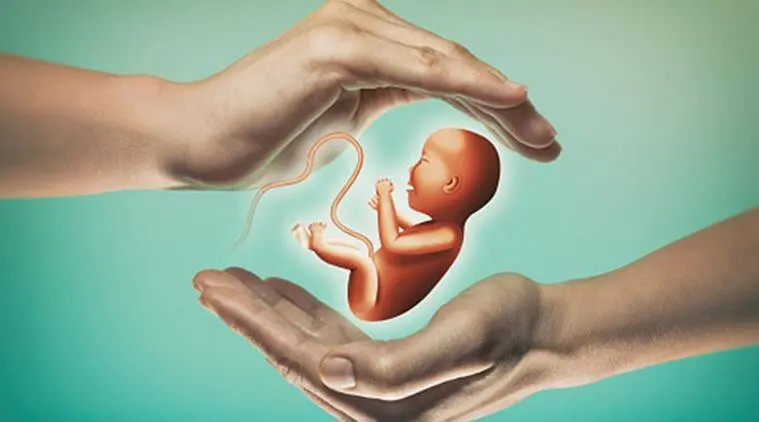INFERTILITY
TREATMENT
In Mumbai

Imagine waking up every day with a deep desire to start a family, only to be broken by the heartbreak of infertility. It’s a dream delayed, a hope impaired, and a harsh reality many men and women worldwide face.
Infertility is not only a medical condition; it can threaten couples’ and individuals’ physical, emotional, and social well-being. The failure to conceive can upset daily life in several ways, from the regret of negative pregnancy tests to the detainment of relationships, mental health, and finances.
For example, imagine a young couple excitedly planning for a child, only to face failed attempts, countless doctor visits, and the continuous reminder of unfulfilled wishes.
Without further delay, join us as we discover the world of infertility treatment in Mumbai.
What is infertility?
Infertility is when a couple cannot conceive a child regardless of frequent, unprotected sex for a significant amount of time (usually one year or more). Infertility can be emotionally challenging and distressing for couples who wish to have a child and might need fertility treatments or medical intervention to overcome it.
What are the causes of infertility?
There are many possible infertility causes, which might impact either women or men, or both. A few general causes include:
- Hormonal imbalances- Hormonal imbalances in either women or men can disturb the usual reproductive procedures. For instance, in women, PCOS or irregular periods can affect ovulation, whereas, in men, low testosterone levels or other hormonal imbalances can affect sperm production.
- Structural problems- Structural problems in your reproductive system can also lead to infertility. In men, problems like varicoceles or blocked sperm ducts can affect sperm transport. In women, conditions like endometriosis, uterine fibroids, or blocked fallopian tubes can interfere with the egg's ability to meet the sperm.
- Genetic factors- Genetic aspects can also play a significant role in infertility. A few genetic conditions can affect the function or production of sperm or eggs, causing infertility.
- Lifestyle factors- Specific lifestyle factors can also lead to infertility. These might include high-stress levels, lack of exercise, poor nutrition, drug use, smoking, and excessive alcohol consumption, which can all affect your reproductive health.
- Infections- Infections, whether sexually transmitted or not, can also lead to infertility. In men, infections like STIs (sexually transmitted diseases) can affect sperm function and production. In contrast, conditions like PID (pelvic inflammatory disease) can lead to damage or scarring in women's reproductive organs.
- Medical treatments or conditions- Specific medical treatments or conditions can also impact infertility. Some examples include thyroid disorders, diabetes, cancer treatments like radiation therapy or chemotherapy, and specific requirements that might negatively affect reproductive health.
- Unexplained infertility- In a few cases, the infertility cause might be unknown, even though complete testing and evaluation.
It’s vital to note that infertility can have several causes, possibly due to a combination of factors in a few cases. If you are facing difficulty in conceiving, it’s always recommended to consult with an experienced gynecologist for the best infertility treatment in Mumbai.
How common is infertility in India?
As per the WHO (World Health Organization), infertility is defined as a disease that is considered the inability of a couple to conceive. The WHO estimates that in India, the regularity of infertility ranges from 3.9 % to 16.8 %. (The data is till the date of 18 November 2022).
What are the main types of infertility?
Infertility can be categorized into two types depending on several factors.
- Primary infertility- This type occurs when a couple has never successfully conceived a child despite having regular unprotected sex for more than one year.
- Secondary infertility- Secondary infertility happens when a couple has conceived in the past and given birth to a child but cannot create it again.
Note: Infertility might involve a combination of female and male factors.
What is the diagnosing process of female infertility?
Female infertility can be determined through a series of medical tests and evaluations conducted by a professional gynecologist. The specified diagnostic procedure might differ based on the individual’s causes, medical records, and other relevant aspects. Below are a few of the standard diagnostic methods for female infertility.
- Pelvic exam
Your gynecologist will conduct a pelvic exam involving a Pap smear to identify structural issues or disease symptoms.
- Blood test
A blood test can detect your hormone levels involving thyroid hormones.
- Transvaginal ultrasound
Your doctor puts an ultrasound wand in your vagina to seek issues with your reproductive system.
- Hysteroscopy
Your healthcare provider puts a hysteroscope in your vagina to scan the uterus.
- SIS (Saline sonohysterogram)
Your gynecologist fills your uterus with sterilized salt water and performs a transvaginal ultrasound.
- Laparoscopy
Your doctor puts a thin tube into a tiny abdominal cut. It helps diagnose issues like scar tissue, uterine fibroids, and endometriosis.
What is the diagnosing process of male infertility?
Below-listed tests can rule out or diagnose a male infertility issue:
- Semen analysis
This checks out for issues with sperm, like poor mobility and low sperm count. A few men require a needle biopsy to remove sperm from their testicles and examine it. This is the only exam most men need for the infertility workup.
- Blood test
A blood test can detect thyroid, testosterone, and other hormone levels. Genetic blood tests check for chromosomal abnormalities.
- Scrotal ultrasound
A scrotum ultrasound determines various testicular issues.
What are the available options for female infertility treatment in Mumbai?

Two main options are available for female infertility include:
- Medications
Fertility medications are utilized to alter your hormone levels to stimulate your ovulation.
- Surgery
Surgical procedures can opt to address uterine fibroids, fallopian tubes, and polyps.
Note- Endometriosis treatment through surgery has significantly improved female chances of getting pregnant.
What are the available options for male infertility treatment in Mumbai?
Some of the available treatments for male infertility are:
- Medications
Medications are prescribed to raise hormone or testosterone levels and address erectile dysfunction.
- Surgery
Surgical methods might be essential to open tube blockages that store and transport them. Varicocele surgery can enhance your sperm health and improve the chances of conception.
Which clinic offers the best infertility treatment in Mumbai?
Are you struggling with infertility? Trust your fertility journey to the expert care of Tasyah Clinic. We will make sure you receive the best infertility treatment in Mumbai. Our clinic provides infertility treatments involving advanced medications and surgical procedures to enhance your conceiving chances. With Dr. Prashansa Raut’s compassionate care and specialized expertise, you can confidently step toward fulfilling your wish of parenthood. Contact us to book a consultation and allow us to help you on your parenthood path.

Your Health Matters!!
Let us help you achieve optimal wellness
with our comprehensive women’s healthcare services
